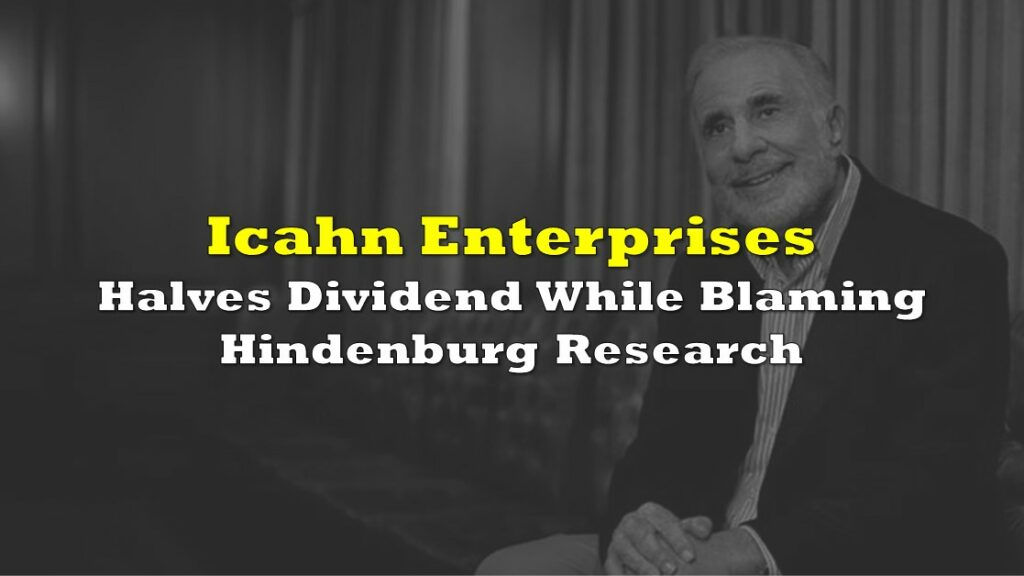Billionaire investor Carl Icahn is now embroiled in a significant legal and financial controversy as the U.S. Securities and Exchange Commission charges him and his publicly traded company, Icahn Enterprises (NASDAQ: IEP), with failing to disclose critical information regarding the pledging of IEP securities as collateral for personal margin loans. This disclosure failure spanned several years and could have far-reaching implications for both Icahn’s empire and the broader market.
The SEC recently announced that Icahn and IEP had agreed to settle charges related to these undisclosed pledges by paying $1.5 million and $500,000 in civil penalties, respectively. According to the SEC’s orders, Icahn, who controls a significant portion of IEP, pledged between 51% and 82% of the company’s outstanding securities as collateral for personal loans from various lenders. This arrangement began as early as December 31, 2018, but was not disclosed in IEP’s financial statements until February 25, 2022—a stark violation of federal securities laws.
“The federal securities laws imposed independent disclosure obligations on both Icahn and IEP. These disclosures would have revealed that Icahn pledged over half of IEP’s outstanding shares at any given time,” said Osman Nawaz, Chief of the SEC Enforcement Division’s Complex Financial Instruments Unit.
The charges highlight significant lapses in transparency that deprived investors of essential information that could have influenced their investment decisions. Icahn’s failure to amend Schedule 13D, which would have detailed his personal margin loan agreements dating back to 2005, is particularly concerning. These omissions persisted until at least July 9, 2023, further complicating the situation.
Following the news, IEP shares nosedived by more than 5% on the opening bell.
This legal wrinkle happens over a year after IEP was targeted by Hindenburg Research, a well-known short-selling firm. Hindenburg’s report accused IEP of inflating asset valuations and operating in a “Ponzi-like” manner, primarily through unsustainable dividend payouts. The report triggered a severe market reaction, causing IEP’s stock to plummet by more than 50% since May 2023.
Icahn, known for his combative style, fired back at Hindenburg, accusing the firm of “wantonly destroying property and harming innocent civilians.” He further claimed that Hindenburg’s tactics were akin to a “disinformation campaign” aimed at undermining the reputation and financial stability of companies like IEP.
However, the damage was already done, with IEP’s market capitalization shrinking by $6.6 billion following the report’s release.
IEP then became a subject of investigation by the U.S. Attorney’s Office for the Southern District of New York following the revelations from Hindenburg’s report, which led federal prosecutors to seek information on IEP’s assets, corporate governance, and dividend practices. Although Icahn has vowed to cooperate with the investigation, the uncertainty surrounding the outcome has continued to weigh heavily on the company’s stock.
In May 2023, Icahn acknowledged the federal investigation, stating, “Hindenburg Research, founded by Nathan Anderson, would be more aptly named Blitzkrieg Research given its tactics of wantonly destroying property and harming innocent civilians.”
The situation at IEP has drawn comparisons to the collapse of Archegos Capital Management in 2021, particularly in how multiple lenders’ exposure to one entity can lead to catastrophic outcomes. Bill Ackman, a longtime rival of Icahn, reignited their feud by likening IEP’s financial situation to that of Archegos. Ackman noted that IEP’s premium had been artificially maintained by its high dividend yield, which was unsustainable given the company’s financial position.
“IEP reminds me somewhat of Archegos, where the swap counterparties were comforted by each having relatively smaller exposures to the situation,” Ackman remarked in a tweet. “The problem is that multiple lenders make for a more chaotic situation. All it takes is for one lender to break ranks and liquidate shares or attempt to hedge before the house comes falling down.”
The financial impact of these controversies has been devastating for IEP. In August 2023, the company was forced to halve its dividend from $2.00 to $1.00 per depository unit, a move that was directly attributed to the fallout from the Hindenburg report.
IEP’s revenues for the second quarter of 2023 fell to $2.5 billion, down from $3.5 billion in the same period the previous year. The company also posted a net loss of $269 million, compared to a loss of $128 million in Q2 2022.
In a separate statement, Icahn attempted to reassure investors by highlighting the long-term returns of IEP, stating that a $7.63 investment in January 2000 would have yielded a 1,623% cumulative increase by July 2023 . However, this reassurance has done little to stem the tide of declining investor confidence.
The SEC’s orders concluded that IEP breached Section 13(a) of the Securities Exchange Act of 1934, along with Rule 13a-1, while Icahn violated specific beneficial ownership reporting requirements under the Exchange Act. Without admitting or denying these findings, both IEP and Icahn agreed to cease future violations and pay the stipulated civil penalties.
Icahn Enterprises last traded at $15.98.
Information for this briefing was found via EDGAR and the sources mentioned. The author has no securities or affiliations related to this organization. Not a recommendation to buy or sell. Always do additional research and consult a professional before purchasing a security. The author holds no licenses.









